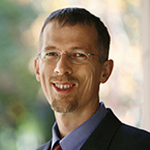Young adults with an autism spectrum disorder (ASD) are more likely to never see friends, never get called by friends, never be invited to activities and be socially isolated.
That’s the finding of new research released online this week in the Journal of Autism and Developmental Disorders that studies the social outcomes of young adults with an ASD.

The study is part of a pioneering program of research on adolescents and adults with autism led by Paul T. Shattuck, PhD, associate professor at the Brown School at Washington University in St. Louis. Lead author is Gael I. Orsmond, PhD, associate professor in the Department of Occupational Therapy at Boston University and an expert on the social development of adults with an ASD.
“This is another study from our project that demonstrates the many difficulties awaiting young adults with an ASD once they leave high school,” Shattuck said. “Autism is a lifelong challenge for most, and we need to find better ways of supporting people during this transition to adulthood.”
The study used data from the National Longitudinal Transition Study 2 and examined social participation among young adults with autism vs. those with other types of disabilities: intellectual disabilities, emotional/behavorial disabilities or learning disabilities.
The study also focused exclusively on young adulthood, the period, authors say, most crucial in forming and maintaining lifelong relationships.
The findings, over a 12-month period:
- almost 40 percent of youth with ASDs never got together with friends;
- 50 percent never received phone calls or were invited to activities; and
- 28 percent were socially isolated with no social contact whatsoever.
“Difficulty navigating the terrain of friendships and social interaction is a hallmark feature of autism,” Shattuck said. “Nonetheless, many people with autism do indeed have a social appetite. They yearn for connection with others. We need better ways of supporting positive social connection and of preventing social isolation.”
This study was supported by funding to Shattuck from the National Institute of Mental Health; Autism Speaks; the Emch Foundation; and the Organization for Autism Research. Other authors are Benjamin P. Cooper of the Brown School; Paul Sterzing, PhD, assistant professor at the School of Social Welfare of the University of California, Berkeley; and Kristy A. Anderson of the University of Wisconsin-Madison.
To read the full article, visit http://link.springer.com/article/10.1007%2Fs10803-013-1833-8.